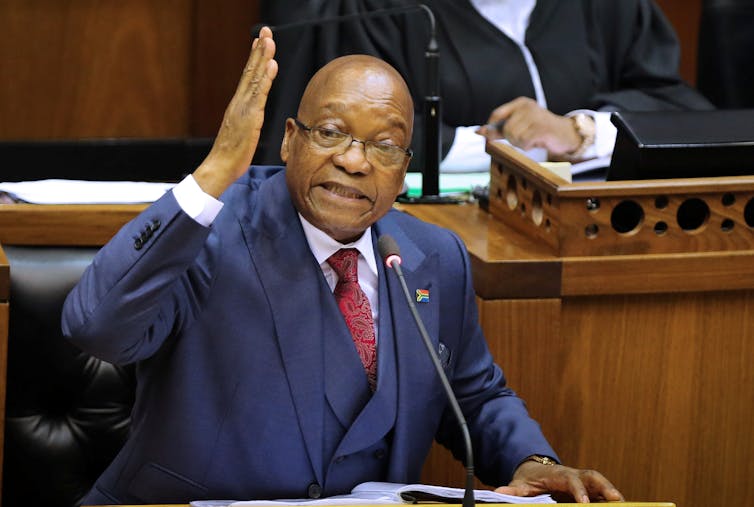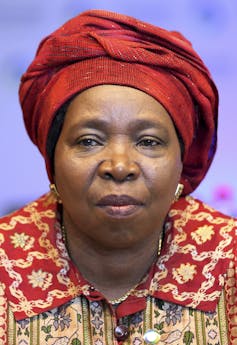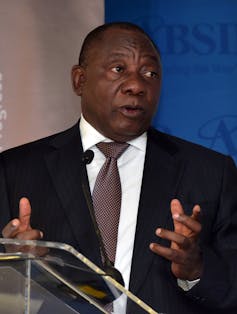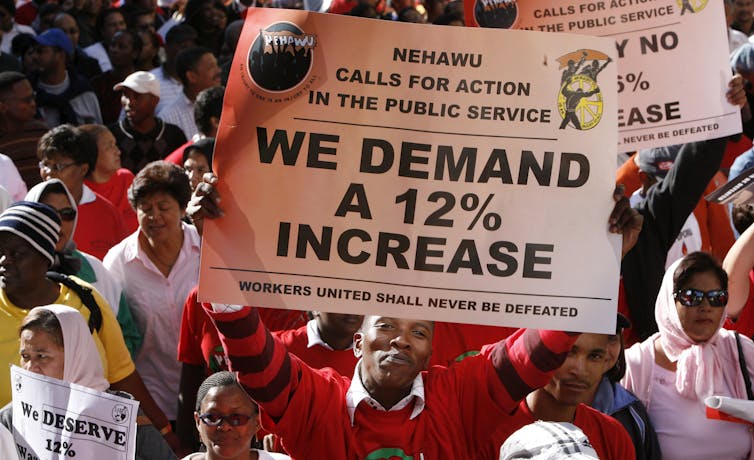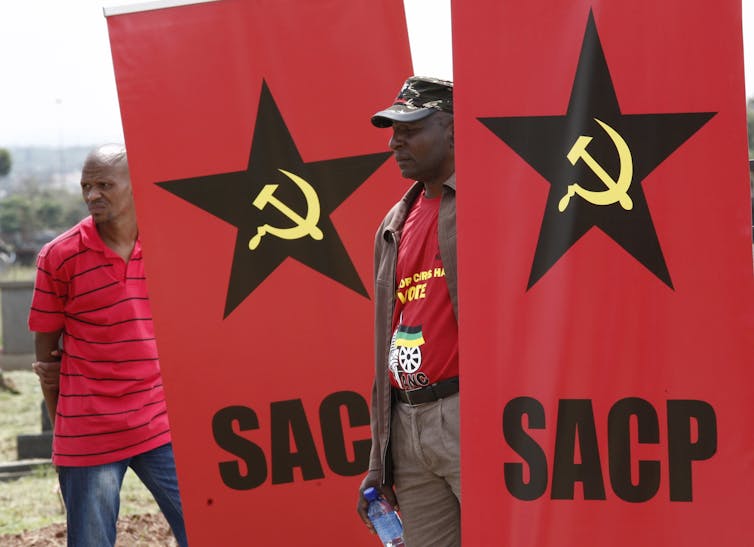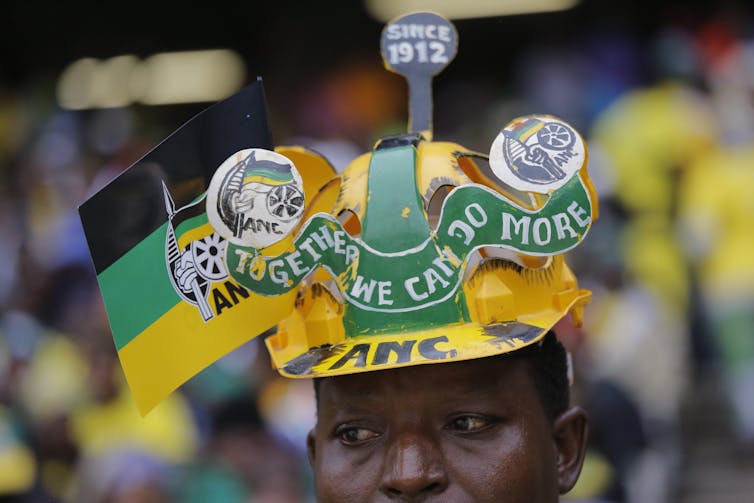
Shutterstock
South Africans are fond of debating whether public or private sector failings are the bigger problem. It does not take too long to realise that they are really talking about race.
This is evident as the country faces an unusual scandal – one involving a private company called Steinhoff. The multinational furniture company is in trouble after German investigators began looking into it, for allegedly doctoring financial information to mislead the markets.
This was not the first time fingers were pointed at a private company. Auditors KPMG have been accused of unethical practice on behalf of the Gupta family who are linked to President Jacob Zuma and are accused of using money to influence government appointments and policies. Media conglomerate Naspers is also facing corruption accusations. Its subsidiary MultiChoice is accused of paying large sums to the formerly Gupta-owned television channel ANN7 in the hope of influencing government decisions.
But Steinhoff stands out because it does most to shake the confidence of one side of the argument and to get the other claiming it is vindicated.
For much of the past few years, corruption has been seen almost exclusively as a public sector problem. Attention has focused on Zuma and his relationship with the Guptas. The private sector (Gupta-owned firms excepted) has, by default, been painted as a corruption-free zone.
The KPMG and Naspers cases may involve prominent private firms, but are seen by the national debate as yet another sign of the Guptas’ baleful influence. The villains remain the same and so does the problem: public sector corruption.
Steinhoff is a different matter entirely. The state plays no role at all and the company is a pillar of the private economy. Its leadership is overwhelmingly white and its attitude to the post-apartheid government seems to range from indifference to scepticism.
No wonder that its failings have been gleefully seized upon by people who insist that private sector corruption is as big a problem as its public equivalent. Or that many of the people who usually insist that public corruption is the problem have reacted to Steinhoff with shock.
On the surface, this sounds like the standard debate in most democracies over the past few decades in which one side favours letting business do as it pleases and the other wants it to be reined in by the state. But, in a country in which whites remain dominant in private business while blacks largely control the government, it is really about the country’s racial divides.
Colour of merit
Apartheid was underpinned by strong beliefs in white superiority – these don’t simply melt away because political rules change. People are used to seeing one racial group in skilled jobs, giving orders to the other: inevitably, this becomes seen as natural and so being white is associated with merit, being black with lacking it.
Since 1994, when policies promoting black advancement in business and the professions were adopted, this is often expressed in the view that black people in senior positions are there because they were given a free pass by the system, not because they deserve it.
This way of thinking also shapes attitudes to government and business. For those used to the racial pecking order of the past, government is run by people who hold posts because they are black, not because they are competent. Business continues to be run mainly by people who were judged to be competent in the past and who are therefore assumed now to be honest and to know what they are doing. Calls to assign more government functions to businesses or business people are often a way of saying that white people or black people approved by them should be running the country.
This attitude is particularly evident in how people in the suburbs react to private monopolies or dominant corporations.
Government departments are almost always associated with waiting in long lines for surly officials who have no idea what they are doing. In most cases, this is a caricature; in some, the Department of Home Affairs passport office for example, it is flat wrong. But similar long waits, indifference to customers and incompetence at the dominant digital television corporation or one of the mobile phone companies is accepted cheerfully as normal business practice.
Delighted black voices
Black people are perfectly well aware of these attitudes. This is why those who insist that the private sector is as bad if not worse than its public equivalent are almost always black. And why many black voices are delighted at what has happened at Steinhoff because it shows that a pillar of white business can behave at least as badly as black government.
It also explains why many white people have reacted to Steinhoff with such shock – and why Steinhoff happened in the first place.
The editor of the country’s leading business daily, Tim Cohen, has pointed out that Steinhoff’s failings should not have been a surprise since several market analysts warned a while ago that something was amiss and were ignored. He offered some explanations but, given the realities described here, the most likely answer is that no-one believed the specialist nay-sayers because they assumed that a major white-owned company must know what it is doing and that the critics must have an axe to grind.
Cohen also ran into trouble on social media for suggesting that reduced capacity at state regulators allowed Steinhoff to happen. Predictably, black people felt (wrongly in his view) that they were being blamed for white business failings.
There is another explanation for the regulators’ inaction. It is that they were not eager to look into a large white-owned company because they feared that this would be seen as yet another case in which incompetent black people wanted to bully competent whites. It is standard in the South African debate that any attempt by government, however mild, to intervene in business is branded a threat to the market economy so it would hardly be surprising if regulators feared this.
Correcting wrong perceptions
The Steinhoff scandal would do South Africa a huge service if it made the point that corruption and mismanagement have nothing to do with race. It would also help if it alerted everyone in the marketplace to watch as carefully over private companies as they do over government departments.
Steven Friedman, Professor of Political Studies, University of Johannesburg
This article was originally published on The Conversation.
